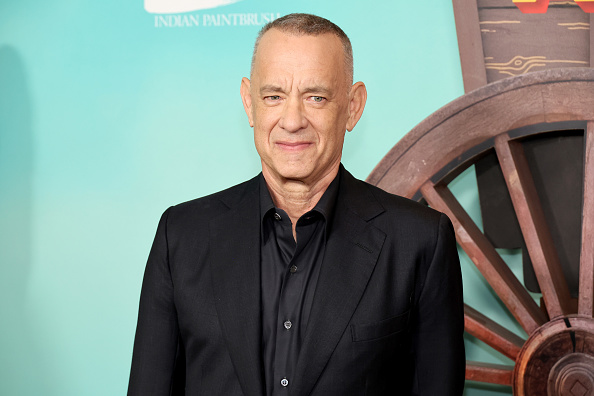
One thing you hear would-be leaders say on their way up is that they aspire to be leaders. It’s not wrong to aspire, but it’s far from enough. Those who simply aspire always seem to be looking up to grab the next rung, to add a more significant title or jewel to their leader crown, so much so that you sometimes wonder if they are conscious of where they are. Good leaders are at least aware that the achievements they covet don’t come easy. Great leaders, however, know something more, something seemingly obvious, yet something that appears frequently forgotten: you only rise as a leader by doing the job you have now, doing it well and doing it well in the context of the whole. Consider a cautionary tale, one refreshingly gone right.
Leadership the Tom Hanks’ way
By almost any measure, Tom Hanks is an enormously successful leader. He’s a leading actor, proven partly by the films he’s starred in, which have grossed $10 billion worldwide. Hanks is a top entrepreneur. Playtone, the production company he founded, has not only produced some of the most successful films of the last two decades, including “Castaway,” “Mama Mia!” and “The Polar Express,” but it’s also a company industry insiders say they long to work for, for the professional experience, not just the success. And Hanks is beloved as a generous mentor to other actors and producers, sharing what he’s learned to help others succeed. That’s the ‘now’ story of Hanks, the leader. Yet, many roles and one crucial lesson came before all that — a lesson Hanks intuited at the start, then almost forgot.
Early in his career, Hanks’ success was far from preordained. He grabbed a bit part here, an internship there, but nothing assuring a rise to greatness, let alone a next paycheck. In those years, Hanks didn’t respond as many others do by simply dreaming of the day lightning would strike. Instead, Hanks saw each seemingly inconsequential puzzle piece along the way as a chance to learn — not just from his roles but how his parts fit the whole. He worked to give his best, of course, but he also watched and absorbed the whole, seeking to learn not just how to be a star but to understand what made a great story, how an ensemble of roles contributed to it, and what those around the actors did to unify it all.
Making a “Splash”
The pieces began to add up, and then Hanks landed his first starring role in “Splash.” Suddenly, or so it felt, there he was, center stage, standing alongside giants, including comedic gods John Candy and Eugene Levy, being directed by Ron Howard, already the stuff of legend as both actor and director and co-starring with a glimmering Daryl Hannah. He had arrived, or so it seemed. And in an uncharacteristic unfamiliar moment, Hanks concluded the expectations must be different than they had been in the past. So, for a pivotal moment, Hanks scuttled the lessons past and assumed the expectations of what he thought it meant to lead.
“Right out of the gates,” Hanks said, “I was trying to be as funny or funnier than the funny guys (Candy and Levy), trying to do the thing others had been hired for,” the things by Hanks’ admission, those others also did better. Why? Because he was the lead, of course! In his mind, that demanded being the best. At everything. A step above everyone, not just in billing but in stature, talent, know-how, all of it. Forty-some years on, Hanks would come to be known as exceptional and exceptionally versatile. Yet, at that moment, he was nothing short of typical — an aspiring leader misperceiving the genuine job of a leader — understanding his role and helping to create an environment where everyone could shine.
It was Ron Howard who taught him a lesson, one Hanks says to this day he’s never forgotten and hasn’t had a job since where he hasn’t applied it. Hanks says Howard pulled him aside just a day or two into the project. Howard looked him straight in the eye, caringly, yet dead serious. “I know what you’re doing!” he sternly told Hanks. “And if you keep doing it, there will be no film, no hit, nothing.” Hanks says Howard finished saying, “Your job isn’t to be as funny as Johnny or Gene. Your job is to love the girl!” Hanks recalls it didn’t just change the moment or the path of a film that became a hit. It changed his career, how he came to understand leadership, and ultimately, his ability to succeed and help others to do the same, over and over again.
Tom Hanks didn’t give up his ambition. He didn’t stop stretching to learn, be or expand and grow in his capabilities. He simply didn’t skip the step of doing each job well. A true leader must first and foremost honor what she does and who she is. It’s the only way to see and understand the totality of success. It’s the only way to create lasting value. In the end, it’s critical to what makes a great leader.
Larry Robertson, named a Fulbright scholar in 2021, is the founder of Lighthouse Consulting and works, writes and guides at the nexus of creativity, leadership and entrepreneurship. He’s the author “The Language of Man: Learning to Speak Creativity,” “A Deliberate Pause: Entrepreneurship and Its Moment in Human Progress” and the new “Rebel Leadership: How To Thrive in Uncertain Times.”
Opinions expressed by SmartBrief contributors are their own.
____________________________________
Take advantage of SmartBrief’s FREE email newsletters on leadership and business transformation, among the company’s more than 250 industry-focused newsletters.
